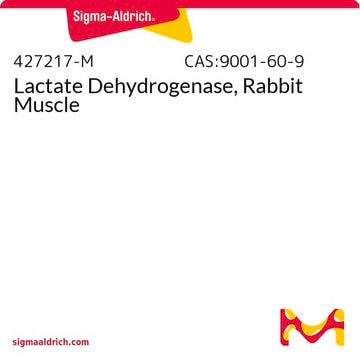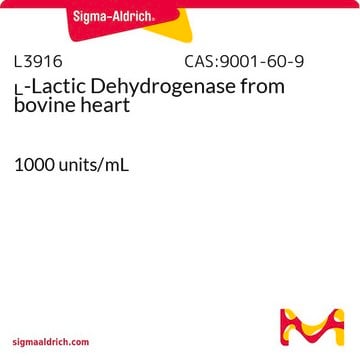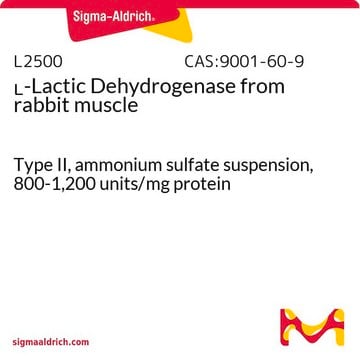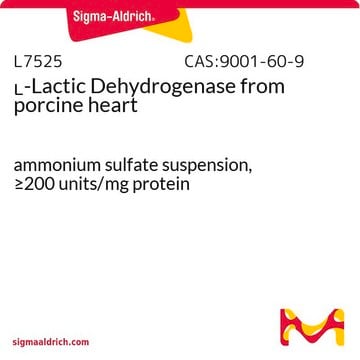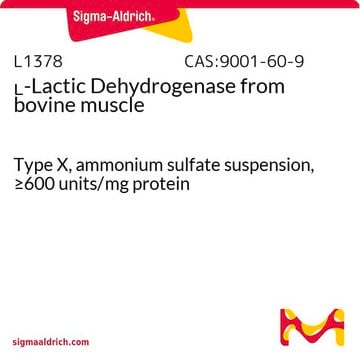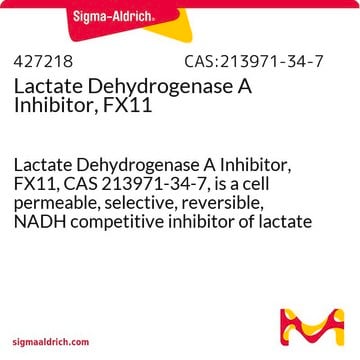Fontos dokumentumok
SAE0049
L-Lactate Dehydrogenase (LDHA)
from human, recombinant, expressed in E. coli, aqueous solution
Szinonimák:
Lactic Dehydrogenase, recombinant from E. coli, α-HBDH, α-hydroxy butyratede hydrogenase, anaerobic lactate dehydrogenase, (S)-Lactate: NAD+ oxidoreductase, L-Lactate Dehydrogenase, Lactate
About This Item
Javasolt termékek
biológiai forrás
human
Minőségi szint
rekombináns
expressed in E. coli
form
aqueous solution
tárolási körülmény
(Keep container tightly closed in a dry and well-ventilated place)
szín
colorless
UniProt elérési szám
kiszállítva
dry ice
tárolási hőmérséklet
−20°C
Géninformáció
human ... LDHA(3939)
Looking for similar products? Látogasson el ide Útmutató a termékösszehasonlításhoz
Általános leírás
The gene LDHA (L-lactate dehydrogenase A chain) is mapped to human chromosome 11p15. It is a subunit of lactate dehydrogenase.In particular, lactic dehydrogenase A (LDHA) is mainly found in skeletal muscle, and for that reason is known as the M subunit. This recombinant form of LDHA has a C-terminal histidine-tag.
Alkalmazás
Biokémiai/fiziológiai hatások
Egység definíció
Fizikai forma
Tárolási osztály kódja
10 - Combustible liquids
WGK
WGK 1
Lobbanási pont (F)
Not applicable
Lobbanási pont (C)
Not applicable
Analitikai tanúsítványok (COA)
Analitikai tanúsítványok (COA) keresése a termék sarzs-/tételszámának megadásával. A sarzs- és tételszámok a termék címkéjén találhatók, a „Lot” vagy „Batch” szavak után.
Már rendelkezik ezzel a termékkel?
Az Ön által nemrégiben megvásárolt termékekre vonatkozó dokumentumokat a Dokumentumtárban találja.
Az ügyfelek ezeket is megtekintették
Tudóscsoportunk valamennyi kutatási területen rendelkezik tapasztalattal, beleértve az élettudományt, az anyagtudományt, a kémiai szintézist, a kromatográfiát, az analitikát és még sok más területet.
Lépjen kapcsolatba a szaktanácsadással



